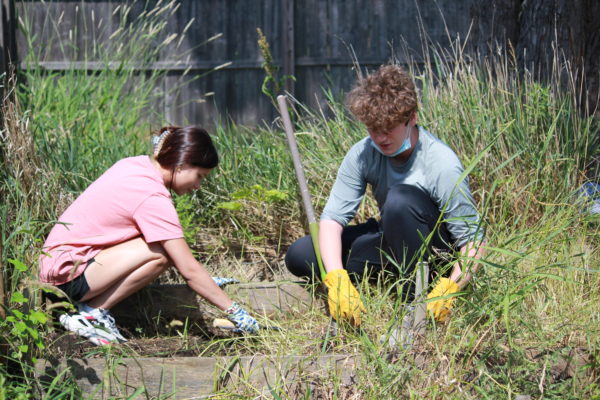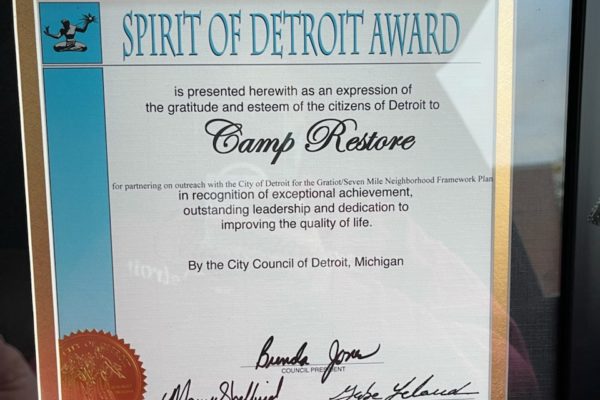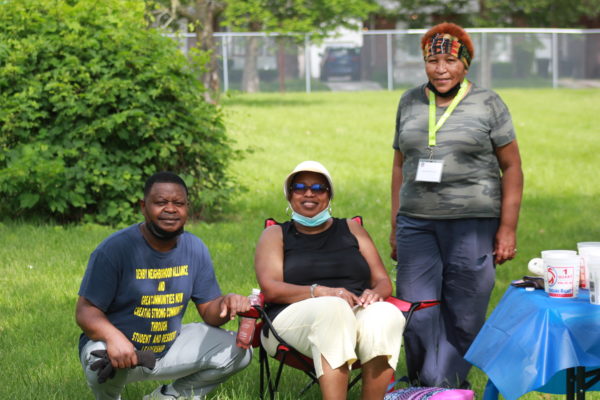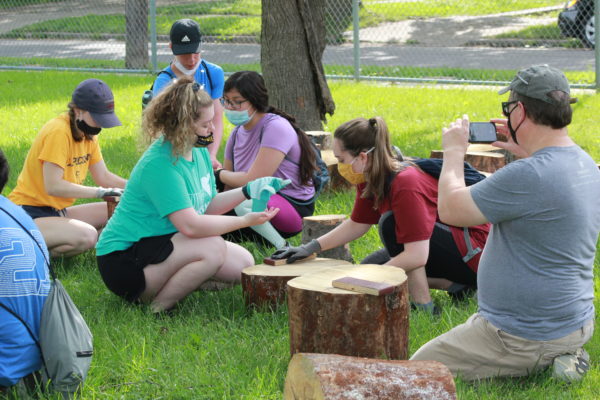Over the next 12 months we’ll be taking a deeper look at the past decade since Katrina on the Gulf Coast and into the future with a regular blog series, K+10.
The dire circumstances that followed Hurricane Katrina cast a light not only on our infrastructural failures and systemic social injustice, but also the resiliency of the Gulf Coast and what is possible when our nation joins together for a common purpose.
While we’ve seen much success in our recovery from Katrina, we find our nation itself is still in the midst of team-building and recovering from the ripple effects of a difficult history. We see the harsh realities of stark political division and gaps in our understanding of one another. At the same time, thanks to our diversity there are many gifts and talents that we, the people, have to offer. As we join in and learn from the ongoing rebirth of New Orleans, we have the opportunity to weave together and strengthen our story and connectedness as a nation.
National Division
In a world that seems completely interconnected by social media, we are in many ways more isolated and separated than ever before.
• Many of our schools are more segregated now than before desegregation.
• We are seeing large values gaps emerge within European-American culture.
• Higher-educated and more-affluent Americans are increasingly living in specific “SuperZips.”
• There is a huge gap in who has Internet access and if so, how fast it is.
• Perhaps most obvious of all, we have increasing polarization in politics.
There are multiple, complex systems at work contributing to these results. Next, we will look specifically at one process that amplifies our preexisting divisions.
Finding Home, or “Sameville”
Over the years, many Americans have been incredibly mobile, often moving multiple times across the country for work opportunities. Moving to a new area requires finding a place to live, and many pick the neighborhood that feels most comfortable. If one is affluent with children, this may be an area with the “best” schools, since cost is less of a factor. If one is a single, young professional with a college education, “home” may feel like an area full of young professionals. And so on.
In “The Big Sort,” author Bill Bishop examines how over the course of multiple decades, our neighborhood preferences have grouped many of us together into neighborhoods of same-ness, reducing the amount of neighborhood diversity nationwide. This has a huge effect on who is in our social networks both in-person and online, and thus the ideas and culture we are exposed to every day.
Team
On one hand, living amongst similar people can seem quite appealing. Unfortunately, when we get comfortable being surrounded by people thinking the same way as we do, it is increasingly jarring and difficult to communicate with someone who holds a different perspective. It can also become more difficult to identify when we are mistaken or lacking in our understanding of others.
At Camp Restore, over the past nine years we’ve had the unique perspective of seeing what it looks like when our entire country joins together for a common mission. In partnering with over 25,000 volunteers, we’ve welcomed a range of amazing gifts, talents, and most importantly, new friends and neighbors, from across our whole nation.
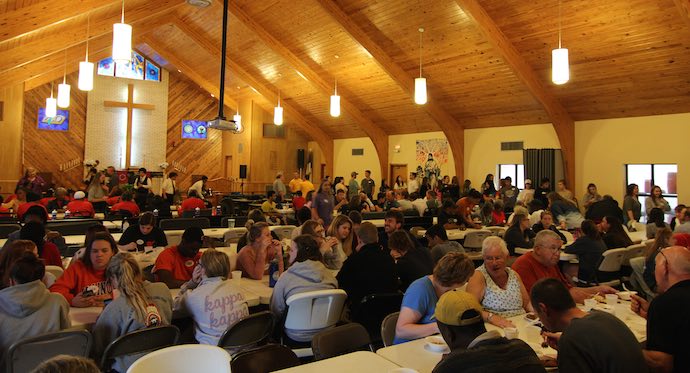
When we look below at the the dot map representing every person in the 2010 Census, we are reminded of the fantastic partnership and collaboration we’ve had with friends from every state and nearly every city.
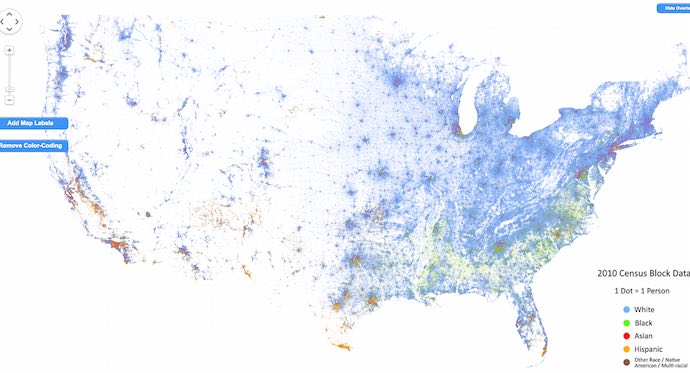
Above, every single person in the continental U.S. per the 2010 U.S. Census, from the Cooper Center.
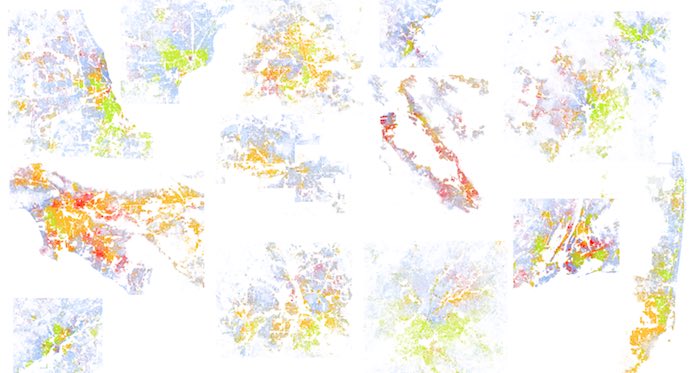
Above, our top metro areas by population, representing 100 million people, from the Cooper Center.
One Step at a Time, Forward Together
We have some fantastic community growing in New Orleans, and the new family we’re connecting with stretches across the country. We feel excited, hopeful and encouraged by the tremendous change that can be accomplished when we come together with common purpose.
So, wherever you may be, we invite you to come join us in New Orleans and to seek out new partners and opportunities to build community across socioeconomic and cultural lines in your own cities, towns and territories.
As Desmond Tutu wonderfully put it, “Do your little bit of good where you are; it’s those little bits of good put together that overwhelm the world.“
